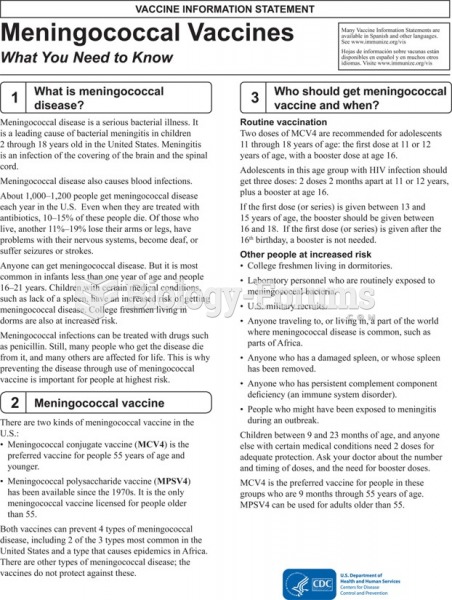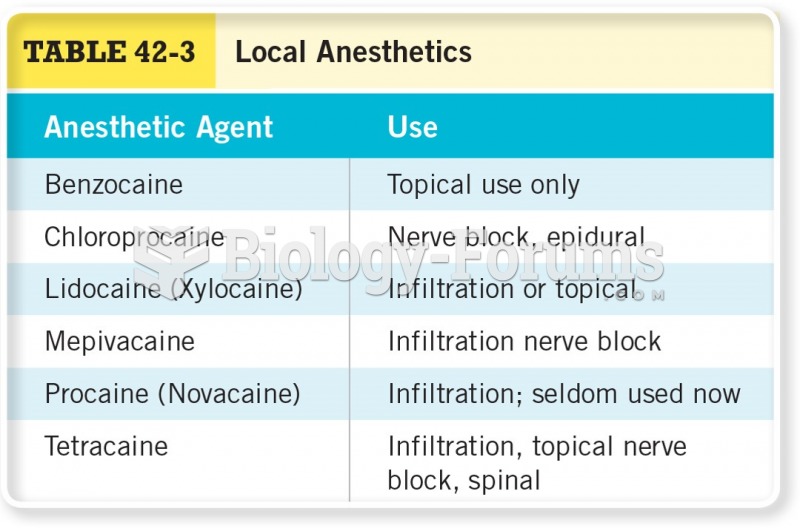Answer to Question 1
Correct Answer: 1,5
Rationale 1: Exposure to meningitis is an indication for the need for immunization.
Rationale 2: There are two types of vaccines available.
Rationale 3: Meningitis is caused by a highly virulent and contagious organism.
Rationale 4: About 10 of those infected with meningitis die, and up to 20 have some degree of permanent neurologic disability.
Rationale 5: Antibiotic therapy is frequently offered to individuals that have had close contact with infected persons.
Global Rationale: Early hospitalization and aggressive treatment with intravenous (IV) penicillin-based antibiotics have reduced the mortality and morbidity of meningococcal infection, a highly virulent and contagious organism. About 10 of patients die from the infection and up to 20 experience some degree of permanent neurologic disability. Once an outbreak (three or more confirmed cases) is documented, immunization is recommended for all potentially exposed individuals, and antibiotic therapy is frequently offered to individuals having close contact with the infected persons. There are two types of vaccines available.
Answer to Question 2
Correct Answer: 2,3
Rationale 1: The virus is not alive.
Rationale 2: Live does not indicate that the virus is actually alive.
Rationale 3: The hepatitis B vaccine is noninfectious.
Rationale 4: No additional medications are needed or given.
Rationale 5: This parent needs additional information before making the decision to refuse this immunization.
Global Rationale: The HBV vaccine is a noninfectious, highly immunogenic vaccine that provides immunity to HBV in 99 to 100 of patients when given in the recommended three-dose regimen. Modern biologic techniques have allowed the development of vaccines that include partial organisms or proteins that are generated in the laboratory. It was originally obtained from the serum of infected individuals but carried the risk of transmitting HIV when it was administered as a vaccine. Through advances in recombinant deoxyribonucleic acid (DNA) technology, yeast cells have been reengineered to produce proteins very similar to those found on the coating of the hepatitis B virus, allowing for the development of safe immune protection from this virus. The virus is not alive and is noninfectious. No additional medications are needed or given.







